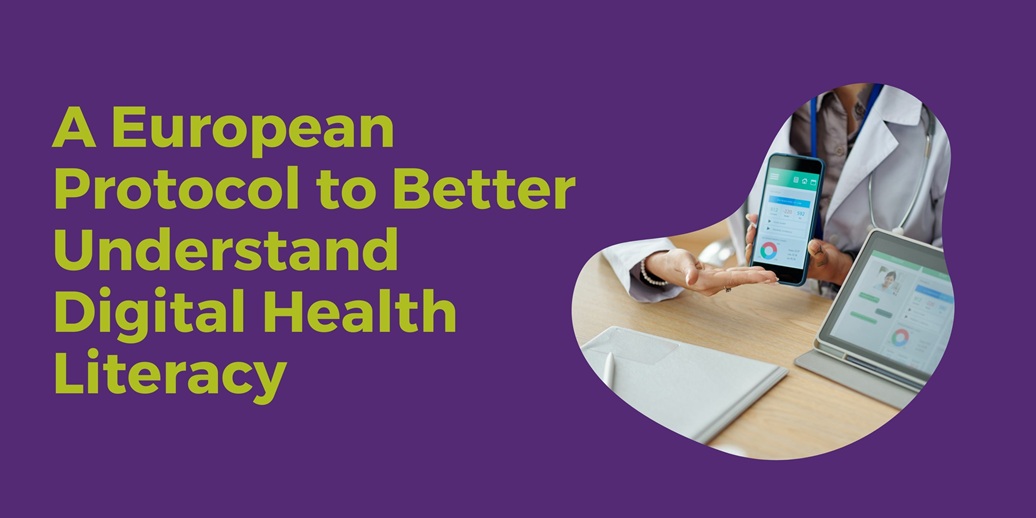As health services and information move increasingly online, understanding how people access and use digital tools has become essential. Yet, not everyone has the same skills or opportunities to benefit from digital health resources. This is where the IDEAHL project – Improving Digital Empowerment for Active Healthy Living – made a key contribution.
One of its outcomes has now been published in Public Health (Elsevier): “IDEAHL comprehensive protocol for obtaining qualitative information from European citizens on digital health literacy” (Rey Hidalgo et al., 2025). The article presents a structured way of listening to citizens across Europe about their experiences with digital health literacy (dHL).
Why develop a protocol?
Digital health literacy is not just about using the internet to look for health advice. It includes the ability to find reliable information, understand it, and apply it in everyday life. For groups who face barriers – whether due to age, education, social or economic factors – this is especially important.
Existing studies often relied on surveys and numbers, which provide useful data but don’t always capture people’s real experiences. The IDEAHL protocol was created to address this gap. It is a qualitative approach designed to explore how different groups use, or struggle with, digital health tools.
How it was built
The protocol was developed through a review of existing research and a collaborative process with digital health literacy experts and stakeholders. It includes:
- Recruitment methods adapted to different population groups.
- Interview guides with general and group-specific questions.
- Participatory techniques to encourage open discussion.
This approach was applied in 10 European countries, involving 1,434 citizens from 19 different groups, ensuring a wide and diverse participation.
What it means for the future
The protocol is intended as a practical tool for policymakers. By providing a clear method to collect and analyse people’s experiences, it can support the design of national and regional action plans on digital health literacy. This helps ensure that future strategies are based on the realities of those who use, or may struggle to use, digital health services.
IDEAHL’s role
Within the IDEAHL project, which ended in April 2024, the protocol was an important step in shaping a European Digital Health Literacy Strategy. The work was strengthened by the contributions of Michelle Perello and Beatrice Avagnina, who played a role in shaping its design.
The IDEAHL project has provided tools that will remain relevant well beyond its conclusion by bringing together evidence, expert knowledge, and the voices of citizens. Access the full scientific publication here: https://www.sciencedirect.com/science/article/pii/S0033350625003646

